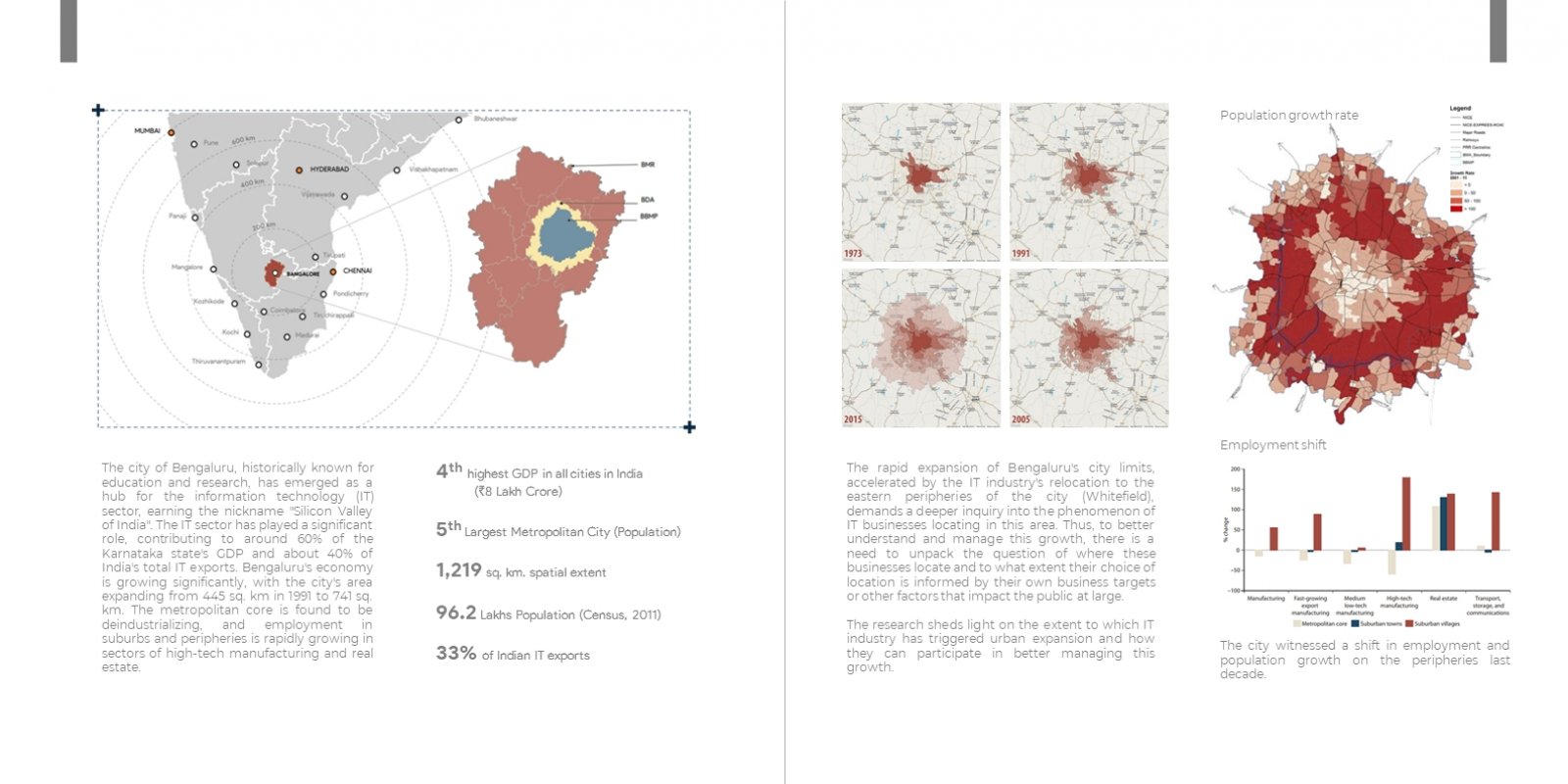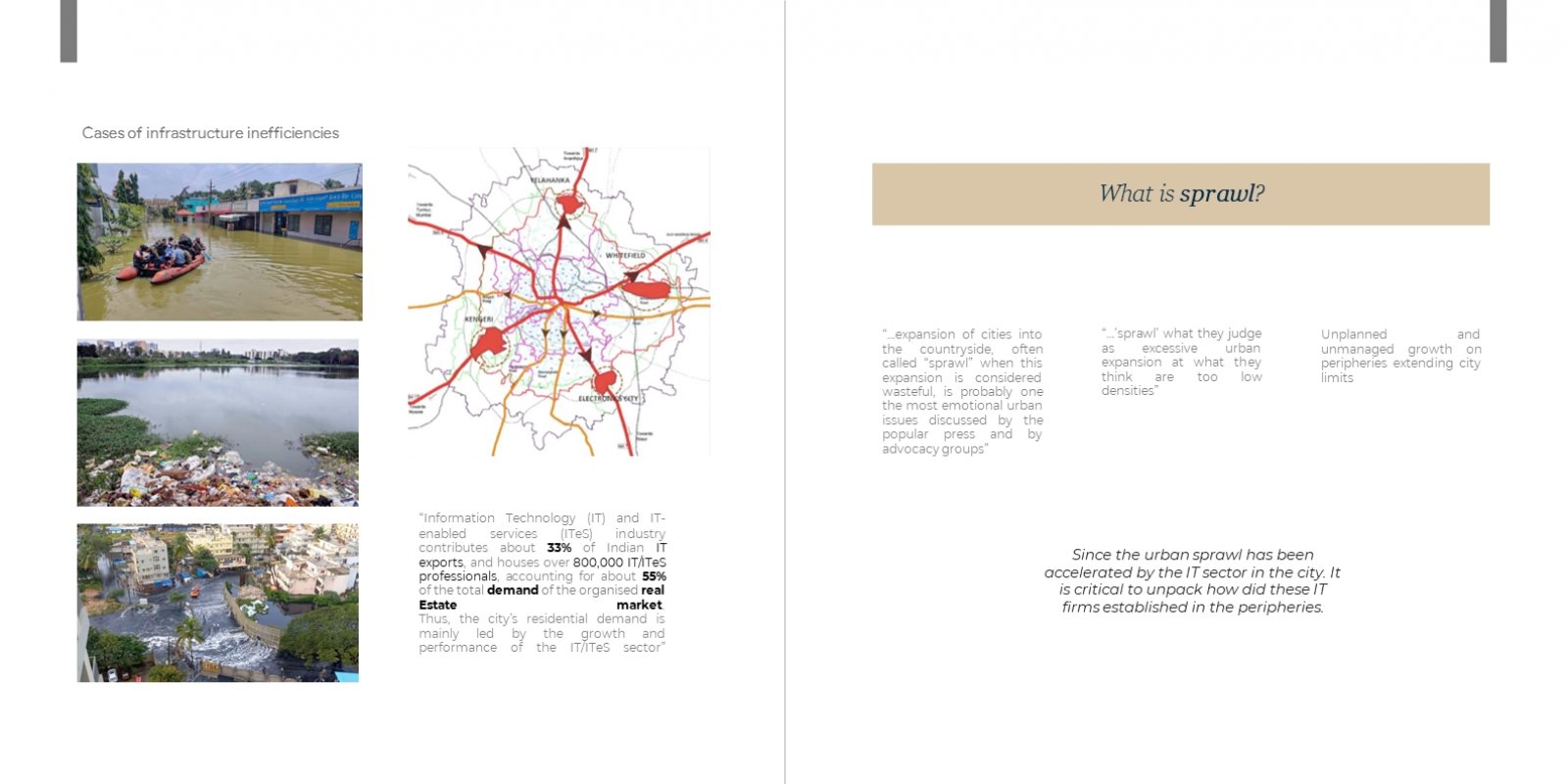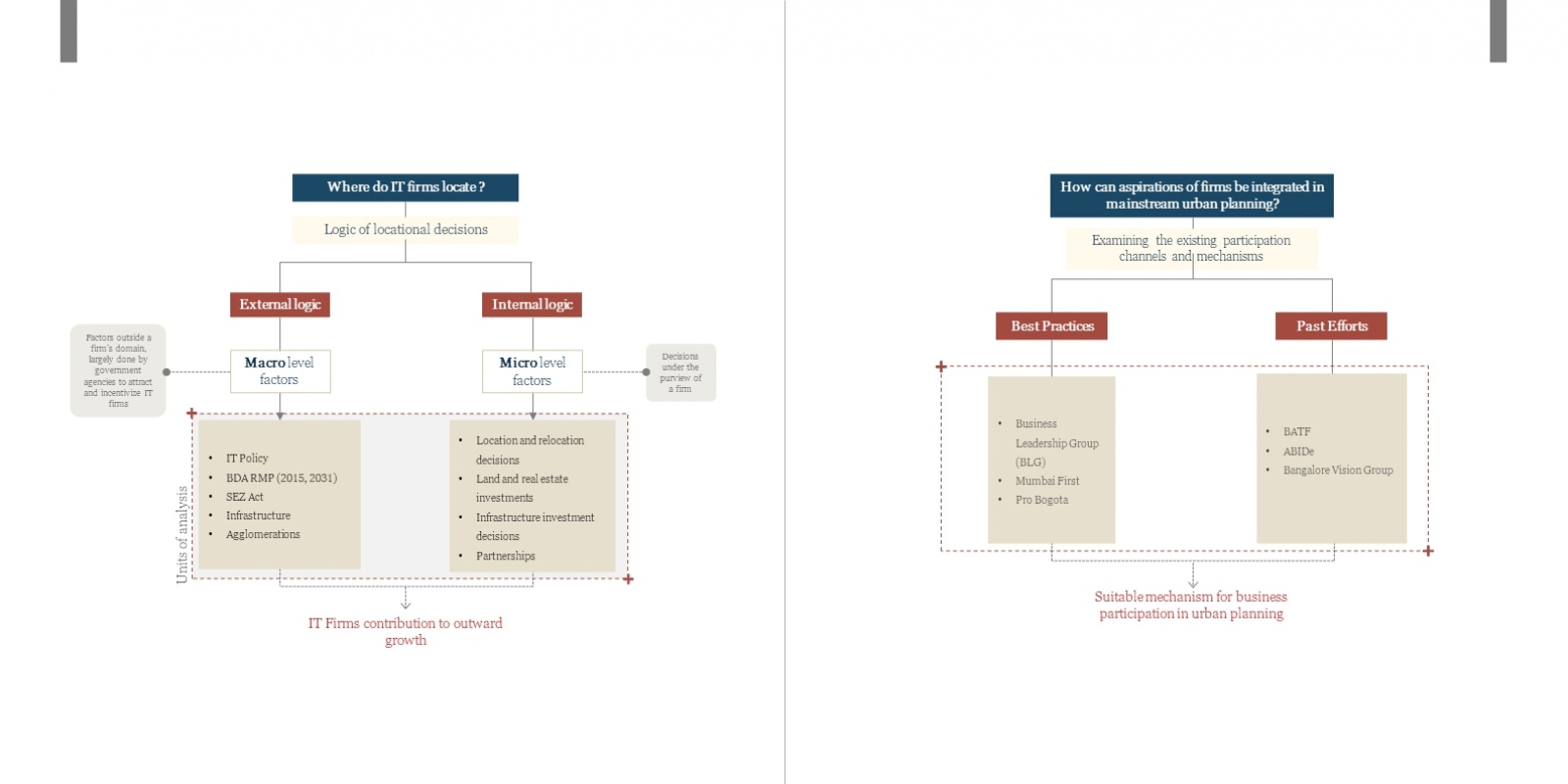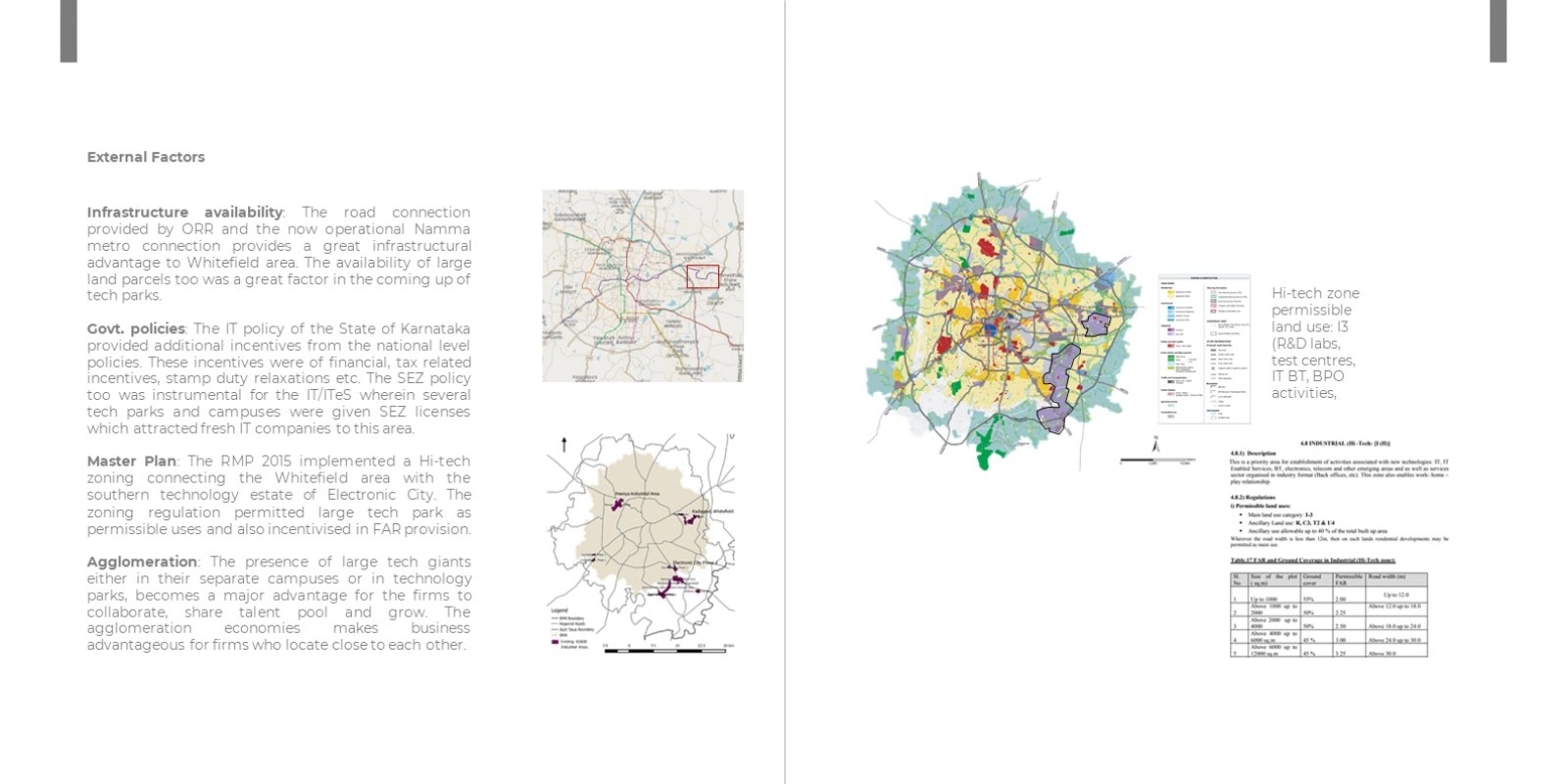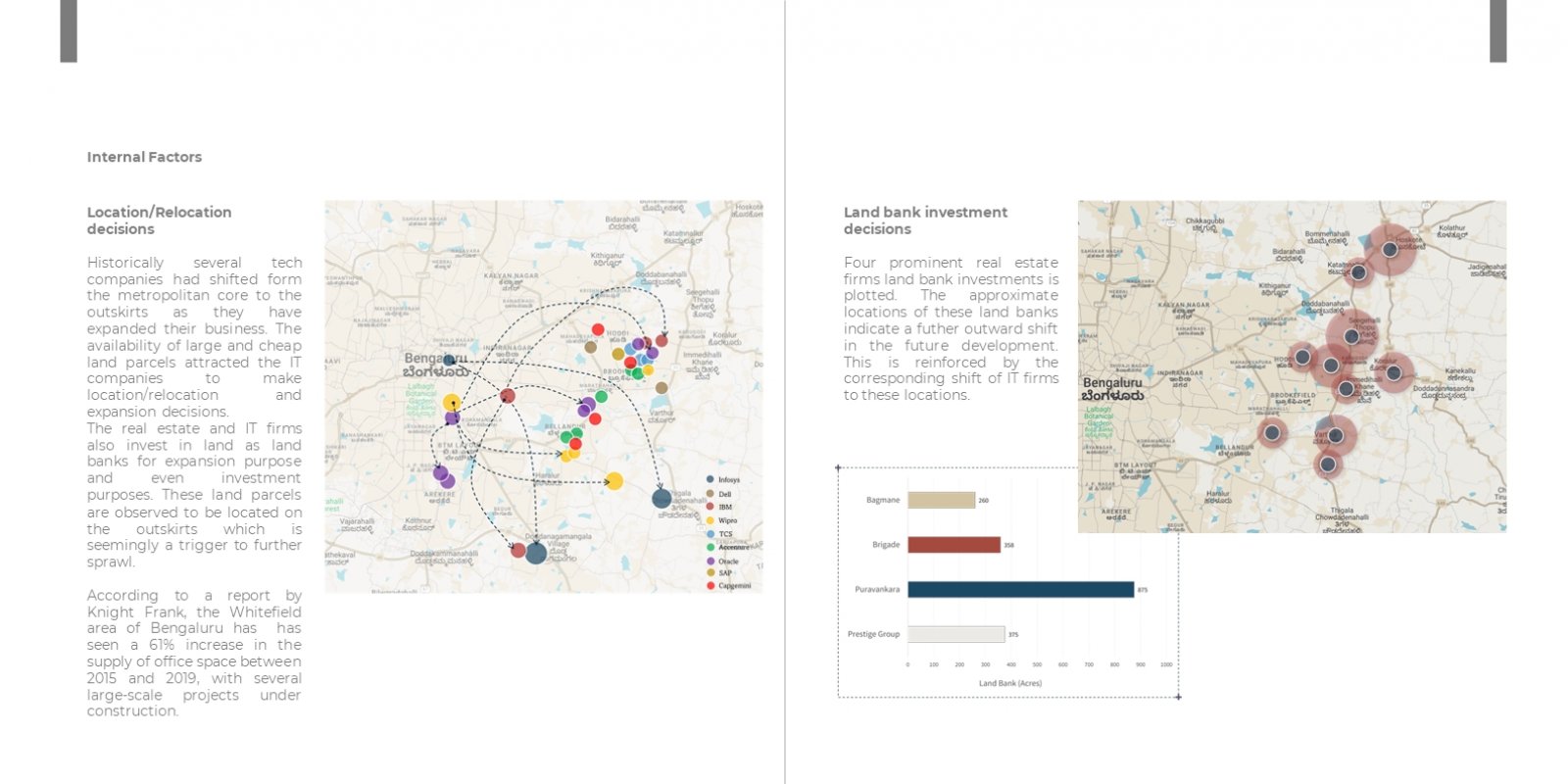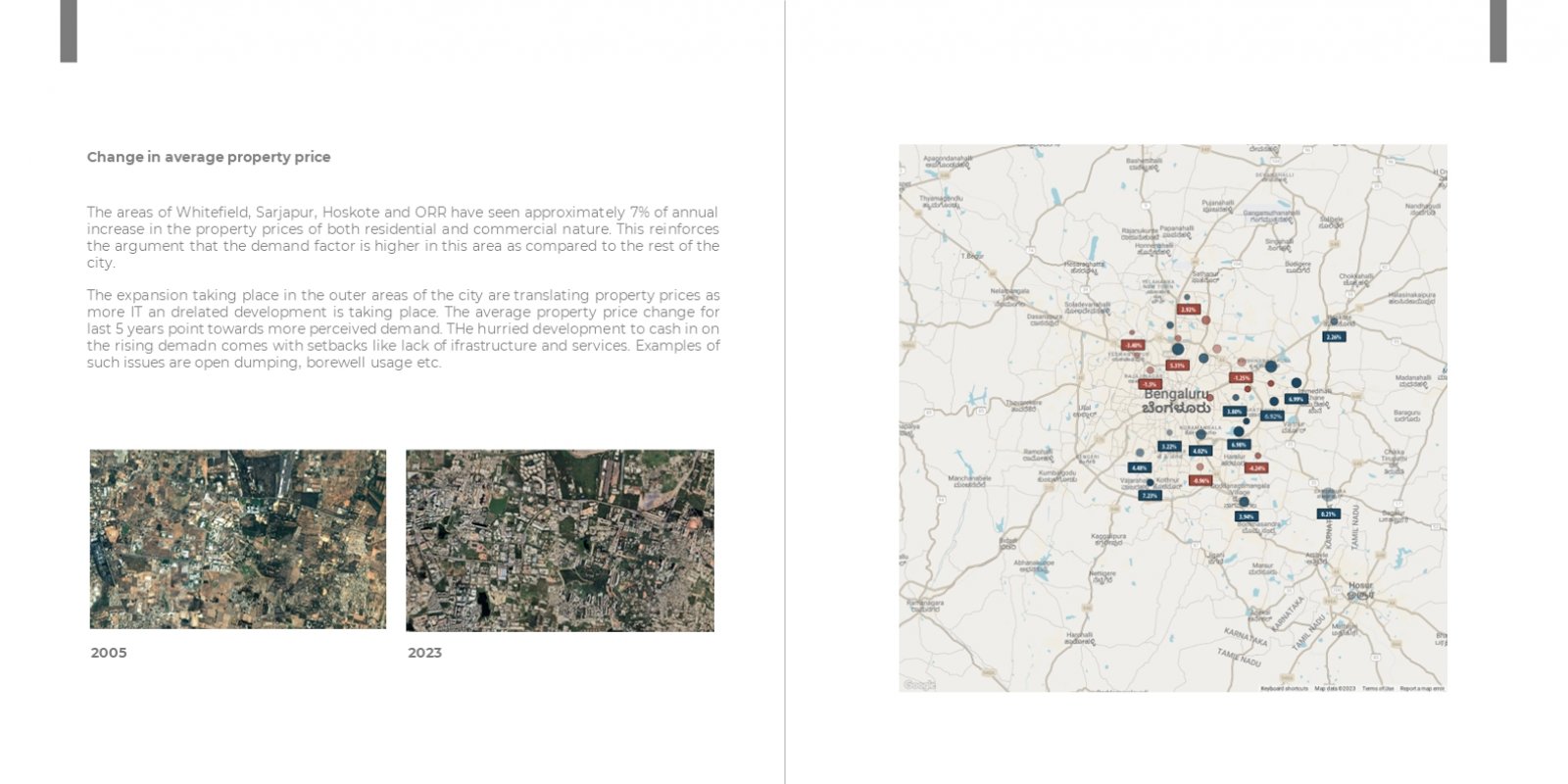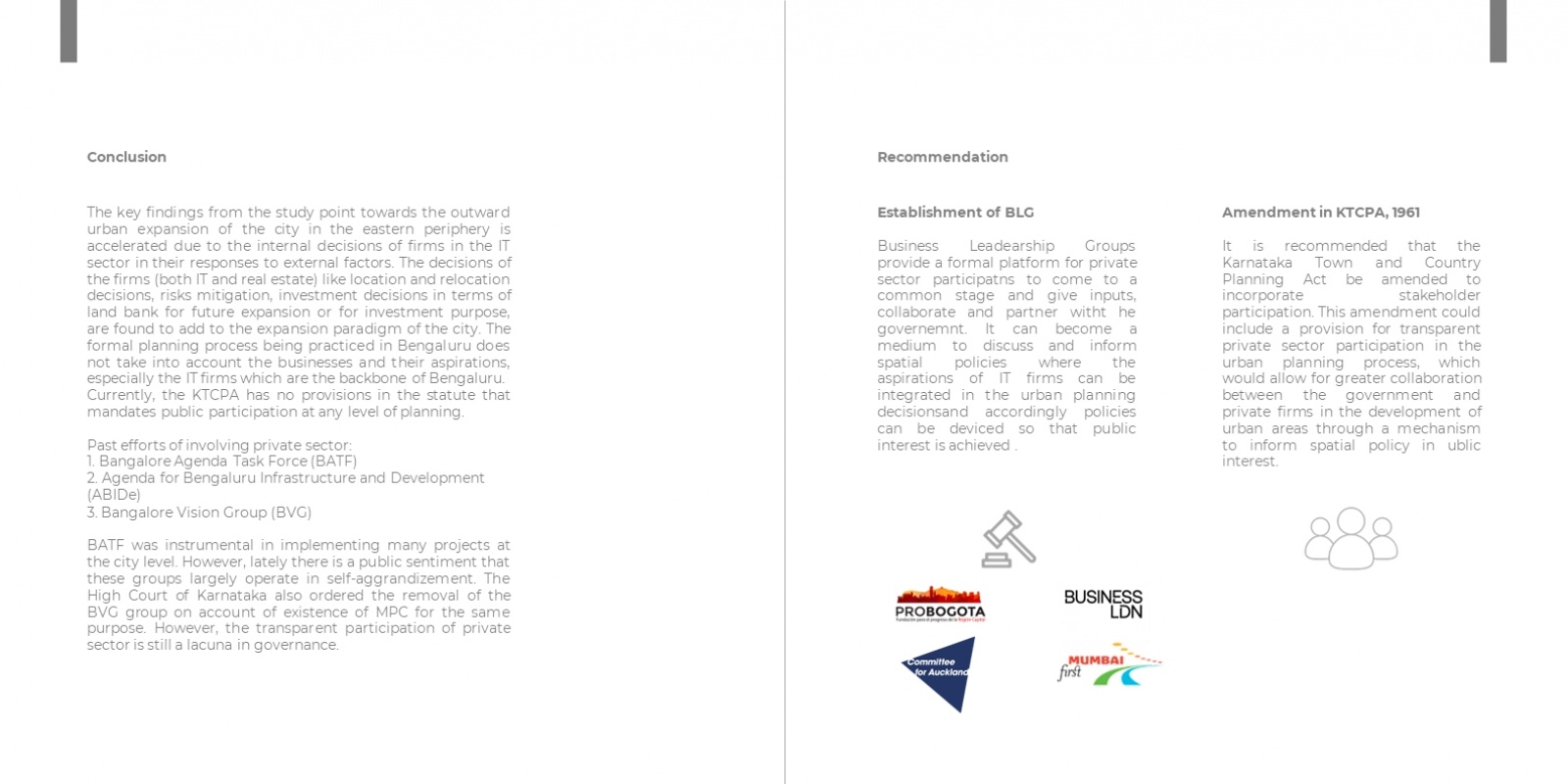Your browser is out-of-date!
For a richer surfing experience on our website, please update your browser. Update my browser now!
For a richer surfing experience on our website, please update your browser. Update my browser now!
This academic inquiry examines the growth and urbanization of Bengaluru, India's renowned "Silicon Valley," and its implications for urban planning and development. The rapid expansion of Bengaluru, propelled by the IT and real estate industries, has resulted in a dichotomous scenario, whereby the IT clusters benefit from quality infrastructure while the rest of the city faces inadequacies in this regard. Furthermore, it is observed that the location, relocation, expansion, and land investments of IT and real estate firms have fostered further expansion of the city without prior planning and provision of infrastructure. The primary objective of this study is to investigate mechanisms that can integrate the private sector into the city's development agenda and prevent their decisions from conflicting with public interests. To this end, the research proposes a framework that combines external macro-level factors with internal micro-level decisions to better understand the location choices of IT firms. The study reveals that the internal decisions of IT firms, such as location and relocation, risk mitigation, and investment, significantly influence the city's outward expansion. The study recommends the involvement of the private sector in mainstream planning and governance processes to ensure that city-level decisions are informed by the economic considerations of the firms and align with public interests.
